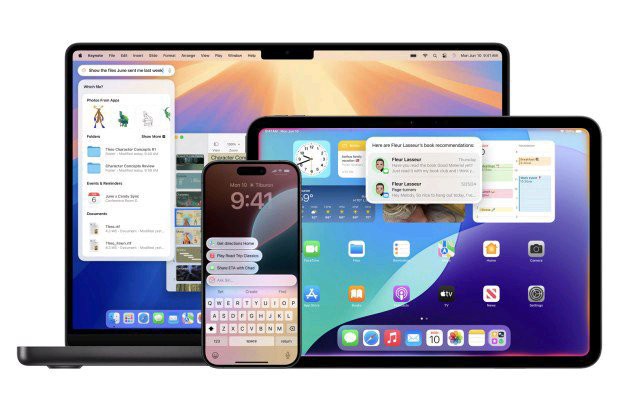TECH
Millions of iPhone Owners Warned: Update Your Device Today

If you’re one of the millions of iPhone owners who hasn’t updated your device yet, you might want to stop everything and do it now. A recently discovered bug could allow cybercriminals to access your iCloud data without leaving a trace.
This flaw, revealed by software firm Jamf, enables malicious apps to exploit your iPhone or Mac, accessing sensitive data like photos, GPS location and contacts, all without your knowledge. Apple’s latest update, iOS 18, is here to fix this vulnerability and safeguard your private information.
What’s the Risk?
According to Jamf’s researchers, the bug is a serious wake-up call. It allows rogue apps to bypass permission notifications, meaning they could quietly steal extensive amounts of data without ever tipping you off. The affected data includes:
- Photos
- GPS Location
- Contacts
- Potentially other sensitive iCloud information.
Imagine an app downloading your personal information while you’re none the wiser, it’s unsettling. Apple has since patched this issue in iOS 18 and macOS 15, but it’s up to the millions of iPhone owners warned to update their devices to stay protected.
What Devices Are Affected?
The good news? Apple’s fix covers a wide range of devices. Here’s the full list of iPhones compatible with iOS 18:
- iPhone SE (2nd and 3rd generation)
- iPhone XR, XS, XS Max
- iPhone 11 series
- iPhone 12 series
- iPhone 13 series
- iPhone 14 series
- iPhone 15 series
So, if you are among the millions of iPhone owners, you’re warned to update your devices, now’s the time to update to iOS 18. Released on September 16, it not only fixes this bug but also patches 38 other security vulnerabilities. Talk about a loaded update!
Spotting Dodgy Apps: Your Eight-Point Checklist
Even with the latest iOS, staying vigilant about app downloads is essential. Malicious apps are a major gateway for cyber threats. Use this checklist to ensure an app’s legitimacy before downloading:
- Check reviews for fake or overly positive feedback.
- Look for grammar mistakes in app descriptions, reputable developers don’t skimp on quality.
- Examine download numbers; low figures can indicate a fake app.
- Research the developer’s reputation and credibility.
- Be wary of apps with recent release dates paired with unusually high downloads.
- Read the permission agreement carefully; excessive data requests are a red flag.
- Note how frequently the app updates, constant updates may point to vulnerabilities.
- Inspect the app icon for distorted or low-quality designs mimicking legitimate apps.
All this information is easily accessible on both the Apple App Store and Google Play Store. A little digging can save you from a big headache later.
How Apple’s Update Strengthens Security
With iOS 18, Apple has introduced a more transparent system for app permissions. Now, users will see pop-ups asking to accept or deny access to specific data for each app. This puts you back in control, ensuring you know exactly what apps are accessing. Alongside this fix, Apple addressed nearly 40 other security risks, making this update one of the most crucial yet.
Jamf’s team praised Apple’s efforts but also warned that this discovery highlights a growing focus by attackers on exploiting iCloud data. Staying updated and informed is the best way to stay ahead of cybercriminals.
Protect Your Data
The discovery of this flaw is a reminder that even the most secure systems aren’t invulnerable. Updating to iOS 18 or macOS 15 is a critical step in protecting your iCloud data from potential breaches.
Combine this with smart app management, like following the eight-point checklist and you can breathe a little easier knowing your sensitive information is safe.
Discover more from Asiwaju Media
Subscribe to get the latest posts sent to your email.
-

 NEWS7 days ago
NEWS7 days agoDavid Beckham Hospitalized With Arm Injury As Victoria Shares Update
-

 ENTERTAINMENT6 days ago
ENTERTAINMENT6 days agoFrank Edoho Confirms Split From Second Wife Sandra Onyenuchenuya
-

 NEWS6 days ago
NEWS6 days agoMan Heartbroken As Girlfriend Of 2 Years Denies Him During Interview With YouTuber Asherkine At UNN
-

 ENTERTAINMENT5 days ago
ENTERTAINMENT5 days agoNollywood Mourns As Actor And Producer Kayode Peters Reportedly Passes Away In Canada
-

 JOBS/SCHOLARSHIPS7 days ago
JOBS/SCHOLARSHIPS7 days agoFG Releases YEIDEP 2025 Payment Schedule, Sparks Hope for Youth in Agribusiness
-

 INSIDE NYSC6 days ago
INSIDE NYSC6 days agoNYSC DG Calls For Unity and National Development During Lagos Camp Visit
-

 POLITICS4 days ago
POLITICS4 days agoChristian Asaga Nwali Bags Award for Contributions to Community Development
-

 SPORTS6 days ago
SPORTS6 days agoAbakaliki FC Faces Kwara United Today in Federation Cup Final
-

 ENTERTAINMENT5 days ago
ENTERTAINMENT5 days agoUNN Student Becky Breaks Silence, Denies Claims Of Boyfriend Denial After Viral Outing With Asherkine
-

 NEWS6 days ago
NEWS6 days agoPhilanthropist Christian Asaga Nwali Commissions Bungalow for Elderly Widow in Ikwo
-

 POLITICS5 days ago
POLITICS5 days agoSenator George Akume Resigns as Secretary to the Government of the Federation
-

 SPORTS5 days ago
SPORTS5 days agoAfonja Warriors Spice Up the Final, Leave Rice Boys with an Empty Bowl






















